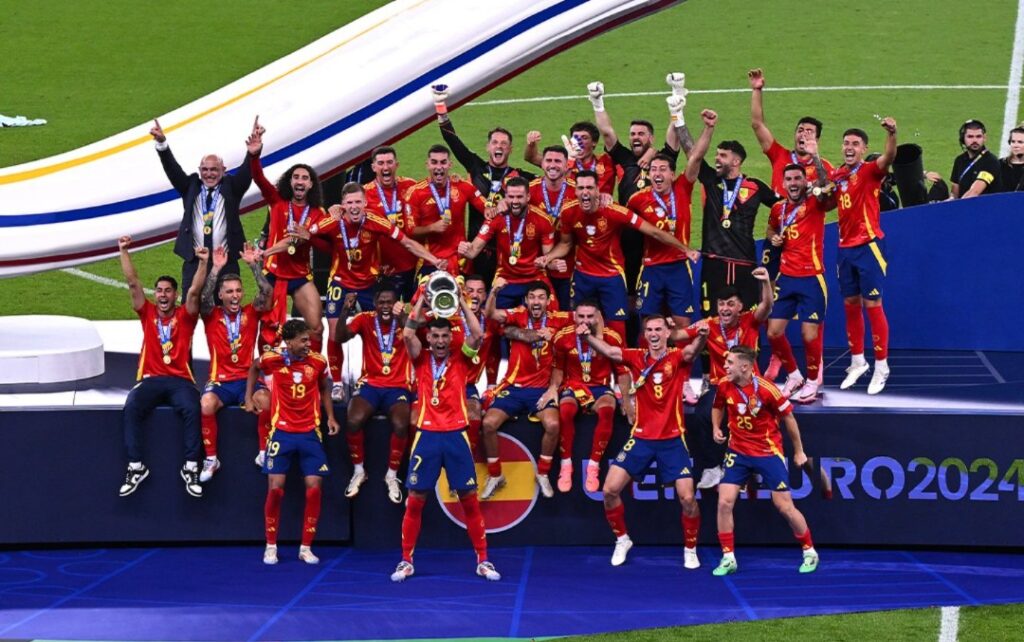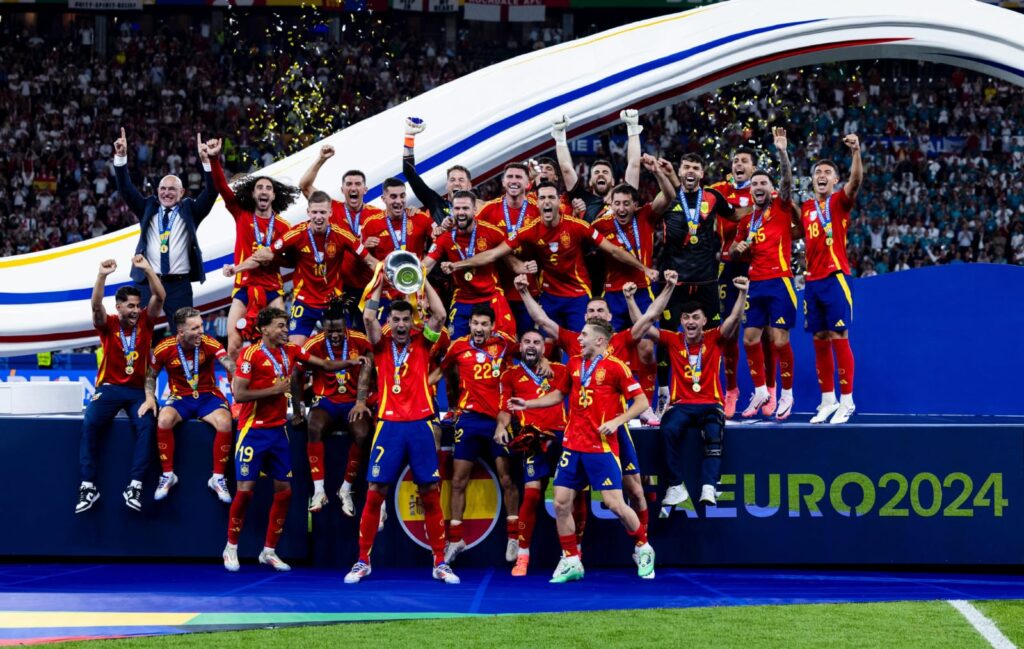
When Luis de la Fuente took over from Luis Enrique after Spain’s round-of-16 exit at the FIFA World Cup in Qatar, 2022, expectations were low. It had been a lost decade for Spanish football, with a horrendous World Cup title defence in Brazil (2014) heralding a sharp decline after the glory years between 2008 and 2012. They did reach the semi-final at Euro 2020, succumbing to Italy in a penalty shootout, but it escaped no one’s notice that four of their six matches were draws.
Unlike his celebrated predecessor, de la Fuente never played for La Roja. And the two league titles he won as a young man with Athletic Bilbao were so long in the past that few knew him as anything other than a coach who had enjoyed considerable success with Spain’s Under-19s and Under-21s.
But sometimes, a fresh start and a new direction is just what a team needs. Just over 19 months on, Spain stand once again at the summit of European football. That they do so after a tournament in which they won each of their seven matches marks them out as one of the special teams in European football history. Seven wins on the bounce in an intense competition would be praiseworthy enough in isolation, but it becomes a mind-blowing feat when you consider that Spain had to negotiate the toughest draw that any team has ever had in a major tournament.
Two of their first-round opponents, Croatia (9) and Italy (10), were in the top 10 of the FIFA rankings before the tournament began. The teams they beat in the semis and final – France (2) and England (5) – were even higher. And in the last eight, they beat Germany, the hosts and second-best team in the tournament, whose ranking of 16 was a red herring.
🧠 Luis de la Fuente #EURO2024 pic.twitter.com/6KxrkTeeLP
— UEFA EURO 2024 (@EURO2024) July 15, 2024
Remarkably, de la Fuente did this by sticking to his principles, and trusting in so many of the players who had come through the youth sides on his watch. When there were more experienced options available, not many would have reposed faith in Nico Williams and Lamine Yamal on the flanks. Williams turned 21 two days before the final, while Yamal, whose composure is simply astonishing, was 17 on its eve.
When Rodri was injured in a collision with Aymeric Laporte late in the first half, de la Fuente turned to another of his former youth-team players, Martin Zubimendi. The Basque rivalry between Athletic and Real Sociedad, based in San Sebastian, is a fierce but friendly one, and it was noticeable that three of the four substitutes he threw on wear La Real’s colours. And it was one of them, Mikel Oyarzabal, who started and finished the decisive move of the match.
For a long time, Spain’s 2008 vintage, which ended a 44-year trophy drought in the Vienna final against Germany, was seen as the finest European side of the 21st century. If you went further back in Euro history, only the West Germany of 1972 – with Beckenbauer as libero, the playmaking genius of Gunter Netzer and the goal-poaching of Gerd Muller – and France 1984 could really be compared to them.
Spain 2008 had Xavi and Andres Iniesta at the heart of their midfield. France had the magic square of Luis Fernandez, Alain Giresse, Jean Tigana and the incomparable Michel Platini, who scored nine of their 14 goals in five matches. But France had to overcome Belgium, Yugoslavia, Denmark, Portugal and Spain to lift the title. Spain were the only former winners, and that, too, from a time (1964) when most nations had yet to embrace the tournament.
Four decades later, Spain have seen off sides that had won the competition seven times and been in seven other finals. It really doesn’t get better than that. There isn’t a fair-minded soul out there who can grudge this triumph. Right from the destruction of Croatia in their opening game, they have set the standard for the rest, and the manner in which they overcame the disappointment of conceding an undeserved equaliser to England spoke volumes of the players’ character.
In a world obsessed with ‘names’ and labels, Spain and de la Fuente have shown the value of processes. Have a system, believe in it, and stick to your playing principles. Spain seldom wavered from that, and their victory can only be seen as a massive fillip for attacking football.
🇪🇸 Spain are champions of Europe 🏆#EURO2024 pic.twitter.com/Ch0AF0iPWl
— UEFA EURO 2024 (@EURO2024) July 14, 2024




